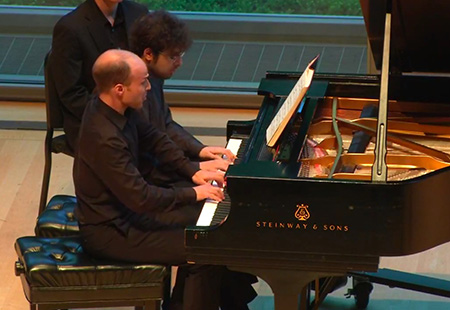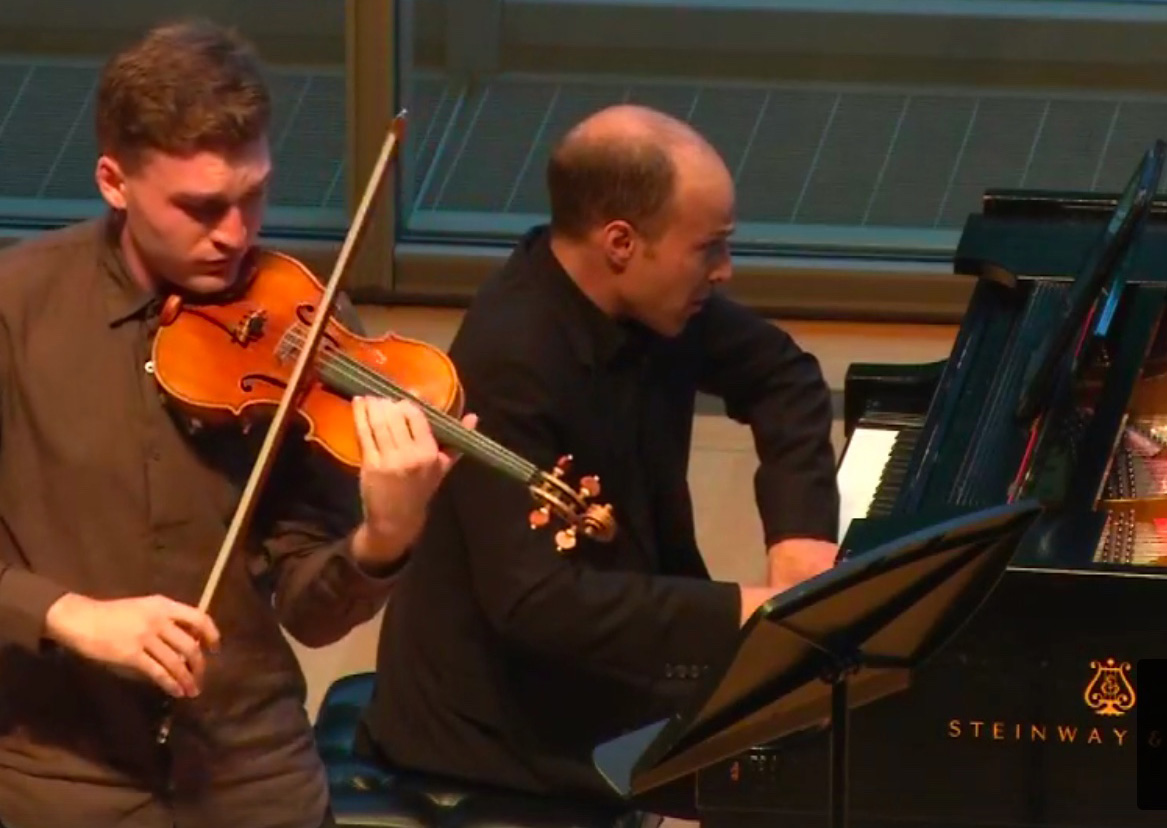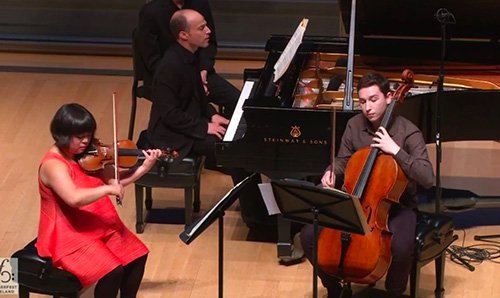by Timothy Robson

This season’s theme, “In Search of Freedom,” is interpreted very broadly, and the connection of opening program’s music to its title, “A Burst of Freedom,” was tenuous at best. But concert titles are irrelevant when the music-making is as fine as that on the opening program.
Pianists Orion Weiss and Roman Rabinovich were completely in sync with each other’s playing in Schubert’s Military Marches, D. 733. The first, in D major, is the most famous of the three, but usually in one of its orchestral transcriptions. The duo overcame its familiarity in a performance suffused with variety, consistent phrasing, and sensitive rubato. The second, in G major, was more deliberate in its pacing. The final, in E-flat major, was pure delight. Schubert wrote these marches in 1818 as teaching pieces for two teenage countesses. They were probably a great success at the time, but one doubts that the royal performances were as musically lively as those of Weiss and Rabinovich.

The second movement Ballada is more overtly lyrical, sometimes with an unusually simple diatonic melody line, leading to an ending on an ethereal high note that fades gradually into the distance. The third movement was sharply accented, as if it was a Czech folk dance. Although the fourth movement begins with lyrical music, later the violin interrupts with reminiscences of the violent themes of the sonata’s opening. Weiss and Kenney managed to stitch together a unified musical fabric from the dark shreds of Janáček’s imagination.

The quality of performance for the opening concert set a high bar for the rest of the seventh edition of Chamberfest Cleveland. There can be little doubt but that level will be maintained over the next two weeks.
Published on ClevelandClassical.com June 21, 2018.
Click here for a printable copy of this article


